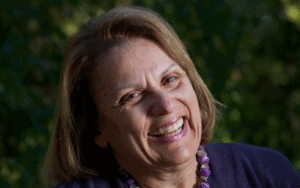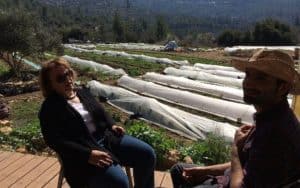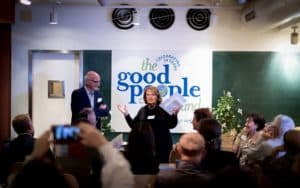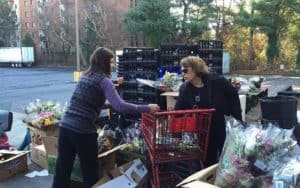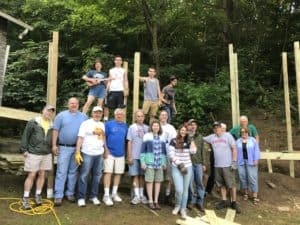
Dawn Tyree was 11 years old when a family friend began to molest her. A bit more than a year later, she became pregnant from these rapes, and her parents found out what had been going on. But they didn’t go to the police; instead, they found another solution.
“It was decided for me that I would marry him,” Tyree recalled.
So Tyree, then 13, was married to her rapist, then age 32. She became one of the thousands of underage American girls who are married each year, often sacrificing their futures to reduce embarrassment to their parents. Statutory rape is thus sanctioned by the state as marriage, and the abuser ends up not in handcuffs but showered with wedding gifts.
Our State Department protests child marriage in Africa and Asia (worldwide, a girl 14 or younger is married every 11 seconds, according to Save the Children), but every state in America allowed child marriages. That has finally changed. Last month Delaware became the first state to ban all child marriages, without exception.
“This is a historic moment for women and girls, where we’re finally ending this relic from a sexist past that is destroying girls’ lives,” said Fraidy Reiss, who runs an organization, Unchained at Last, that fights child marriage. “It shouldn’t have been this difficult.”
One study by Unchained at Last estimated that there were nearly a quarter-million child marriages in the U.S. between 2000 and 2010.
Last year I wrote about Sherry Johnson, a Florida woman who had been married at the age of 11 to her rapist. After that article, many readers wrote to me saying that my facts were wrong and that their state had a minimum age of 18 for marriage.
Sadly, the facts were right. Yes, states set a minimum age of 18, but they also allow exceptions, such as with the approval of parents or a court, or when a girl is pregnant. Indeed, 20 states don’t set any minimum statutory age for marriage, according to the Tahirih Justice Center’s Forced Marriage Initiative.
That column about child marriage, along with other publicity and heroic efforts of many activists, prodded legislators to re-examine the issue, but the strongest opposition to a change has come from conservatives who argue that a pregnant girl should be able to marry the unborn child’s father. The idea is that such a marriage will avert an abortion, or at least increase the prospect that the child is raised by a married couple rather than by a struggling single parent.
I understand the goal. But in practice, these marriages involving child brides often don’t succeed and frequently lead to marriages between a young girl and her older rapist.
That’s what happened with Tyree, whose marriage was in 1985. She said the abuse began when she was in the fifth grade in California and her parents moved to Texas, leaving her behind to be looked after by a family friend, in effect a male nanny, who soon took advantage of her. “My abuser convinced me daily that I was old enough to be in a sexual relationship, and that other adults would not understand,” she said.
She kept the secret until she became pregnant. At that point, her parents were upset — presumably at the rapist, but also at the prospect of scandal. “My dad is conservative, so abortion was not an option,” she recalled, and she said everyone told her that her only path was marriage.
“We went to the county courthouse, and a judge asked if I wanted to be married,” Tyree remembered. “My answer was ‘yes.’ For a couple of weeks, I’d been told that marriage was best for me and that I needed to tell the judge that.”
Tyree missed seventh and eighth grades because of the pregnancy and the birth of her son, and because another child, a daughter, soon followed. Tyree became concerned that her husband was a pedophile who might prey on her children, so the marriage lasted just three years; at age 16 Tyree found herself a single mom.
In such cases, a bride can be coerced even if she isn’t beaten. “I was very scared and confused, and I wanted to keep my family happy,” she told me. “Being unwed with child would have been embarrassing to the family. I wanted to keep the peace.”
Yet she was blunt about what happened: “The marriage was a way to cover up the rape. The marriage was a way to keep me from being an unwed teen mother. The marriage was a way to avoid any child services investigation. The marriage was a way to avoid child neglect charges against my parents. The marriage was a way to keep my husband out of prison.”

Some say that they oppose marriages at 13 but not at 17, and it’s true that some underage marriages work out fine. I grew up in rural Oregon, where one of my neighbors was a devoted wife who had married at 16.
Juliet was 13 when Romeo courted her (although that didn’t work out so well). But marriage often ends a girl’s education, and when something goes wrong, a 16- or 17-year-old wife faces particular difficulties: She cannot flee to a domestic violence shelter, which typically will not take anyone under 18, and in some states, an underage girl fleeing an abusive marriage is legally a runaway.
Marriage laws are mostly a matter for the states, but there is room for federal action. American girls in immigrant families are sometimes pressured to marry a distant relative abroad as a way of bringing him to the United States, and it should be a simple matter to ban spouse visas unless both parties were 18 at the time of the marriage.
“It’s degrading to let teenagers marry; it’s not a beautiful thing,” Sonora Fairbanks, now 39, told me, and she knows what she’s talking about: She was married when she was 16 to a man more than 10 years older.
Fairbanks was raised in a deeply Christian family, home-schooled and not allowed to date. She said her parents began talking to her about marrying her future husband when she was 15, partly for her to avoid teenage wildness, and she went along with it because she felt stifled and thought the only way to escape was through marriage. Oh, and she was eager to discover sex. “I was a typical horny teenager,” she explained. (Fairbanks’s marriage turned poisonous and eventually disintegrated.)
It’s frustrating that legislators cling to archaic marriage laws linked to so much abuse; at Unchained at Last, the spreadsheet listing marriage laws by state is labeled “BYHAWS,” short for Banging Your Head Against the Wall Spreadsheet. But now, with Delaware leading, it seems the wall may finally be giving way.
“We finally have one state that shows us that it’s possible,” Reiss told me. “One state down, 49 to go.”



